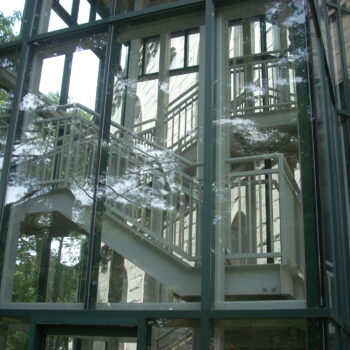
Salus Health Care Forum: February 2025
Bill G
I was just going to tee off what Warren was saying. He and I both have been around long enough to know there was a time when we thought we should be talking to our general internist colleagues and have a much larger collaboration. We seem to forget in Family medicine that there are actually more of them than there are of us, although obviously not all of them are generalists. But the idea of us getting out of hospital medicine largely was a huge mistake. And not having a close collaboration with our general medicine colleagues, I think, is a big mistake. We’re trying to do some of that through the Graduate Medical Education Transformation Initiative. But there’s a whole bunch of allies in this very broken system who we continue to isolate. We put boundaries between the specialties that don’t make a lot of sense. There’s actually a lot more commonality of interest around many of these issues. And yet we continue to somehow want to emphasize differences rather than commonalities.
Jeremy
I agree with that. In California, we’ve struggled with this issue. We expanded our Song Brown Grant program when we let internists, pediatricians, ER doctors, and OB-GYN doctors get into the mix. A greater amount of money flows, but more competition comes with it. So I think it requires a certain amount of assertiveness training for family physicians. We tend to get mowed over by their political machinations. They’re more effective at that historically. I think we could change that.
The other members of the healthcare community that intrigue me are the MAs. They are lower-power professions. Even behavioral health non-psychiatrists get looked at as members of a step-down profession. But in my view, family physicians and behavioral health folks can effectively work together in a clinic. We don’t need too many psychiatrists. However, I’d also like to help a psychiatrist. But I think a lot of progress and collaboration is going to come down to the regional communities deciding what they need. And family medicine is the centerpiece of helping build that. We get along with everybody. That’s one of our great strengths that we underutilize. So Warren, I think it’s a great question.
Warren
Let me offer some final thoughts about the impact of COVID on our residency learning network. Jeremy, you know that between Jay Fetter and myself, we’re in contact with hundreds of program directors. Two years ago, just coming out of COVID, we began to say we wanted to support residency learning networks. Many program directors said: What can I possibly learn from other program directors? And then maybe six to 12 months ago, they began saying: You know, I think I can learn things from other program directors. How do I do it? And now they’re beginning to say, all right, let’s try to do it. COVID affected us in so many ways. One of the ways was this social isolation and the defense mechanisms that we all put in place. At least, that’s how I would see it. And I think family docs are actually pretty good at working and learning with other people. And we lost that with COVID. And at least that’s how I’m thinking right now. And I think it’s palpable. It’s ironic, given a specialty that was founded on a biopsychosocial notion that we family medicine docs didn’t see this impact on our discipline. And I’m encouraged because people are beginning to look to learn from other people and figure out how to do it. So that’s an uplifting ending.
Bill B
It’s a heck of a good ending. We’re at the ending time. Thank you all very much.
- Posted by Bill Bergquist
- On March 29, 2025
- 0 Comment



Leave Reply